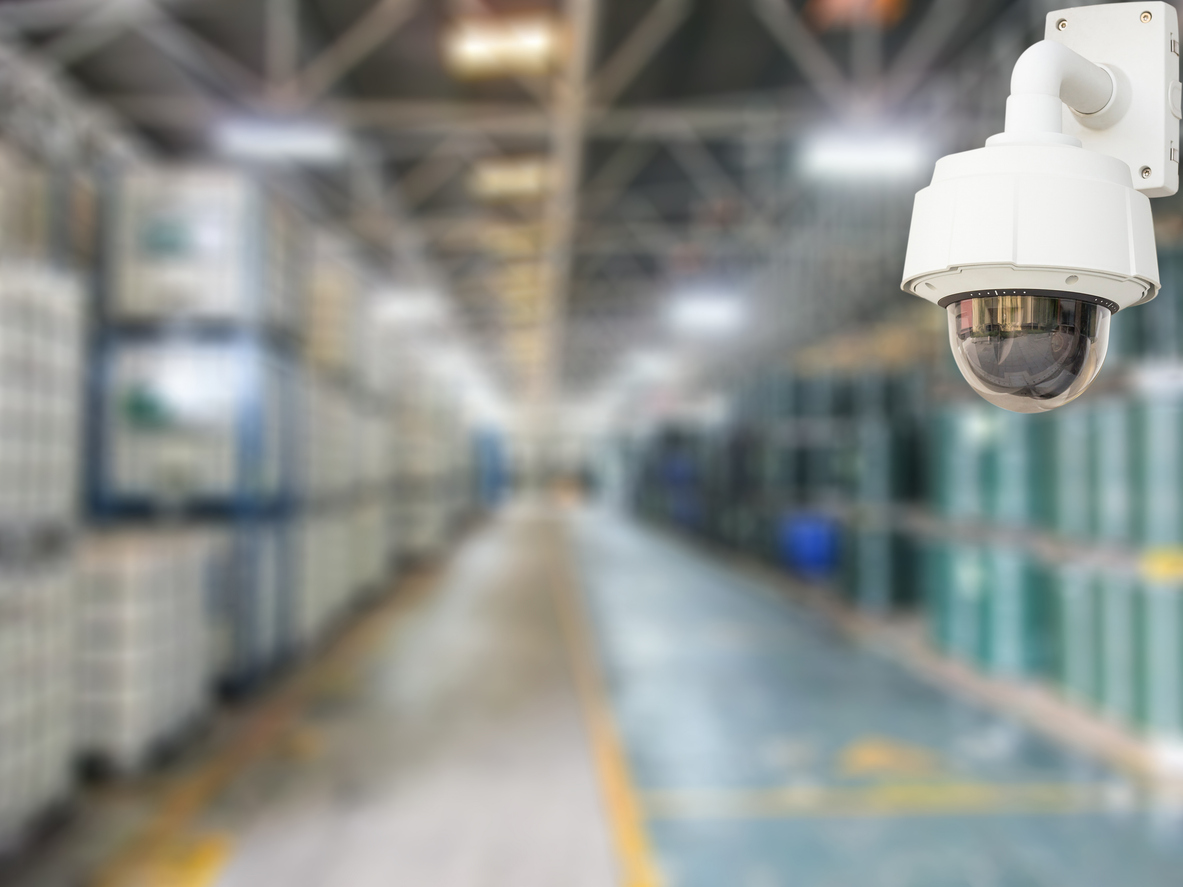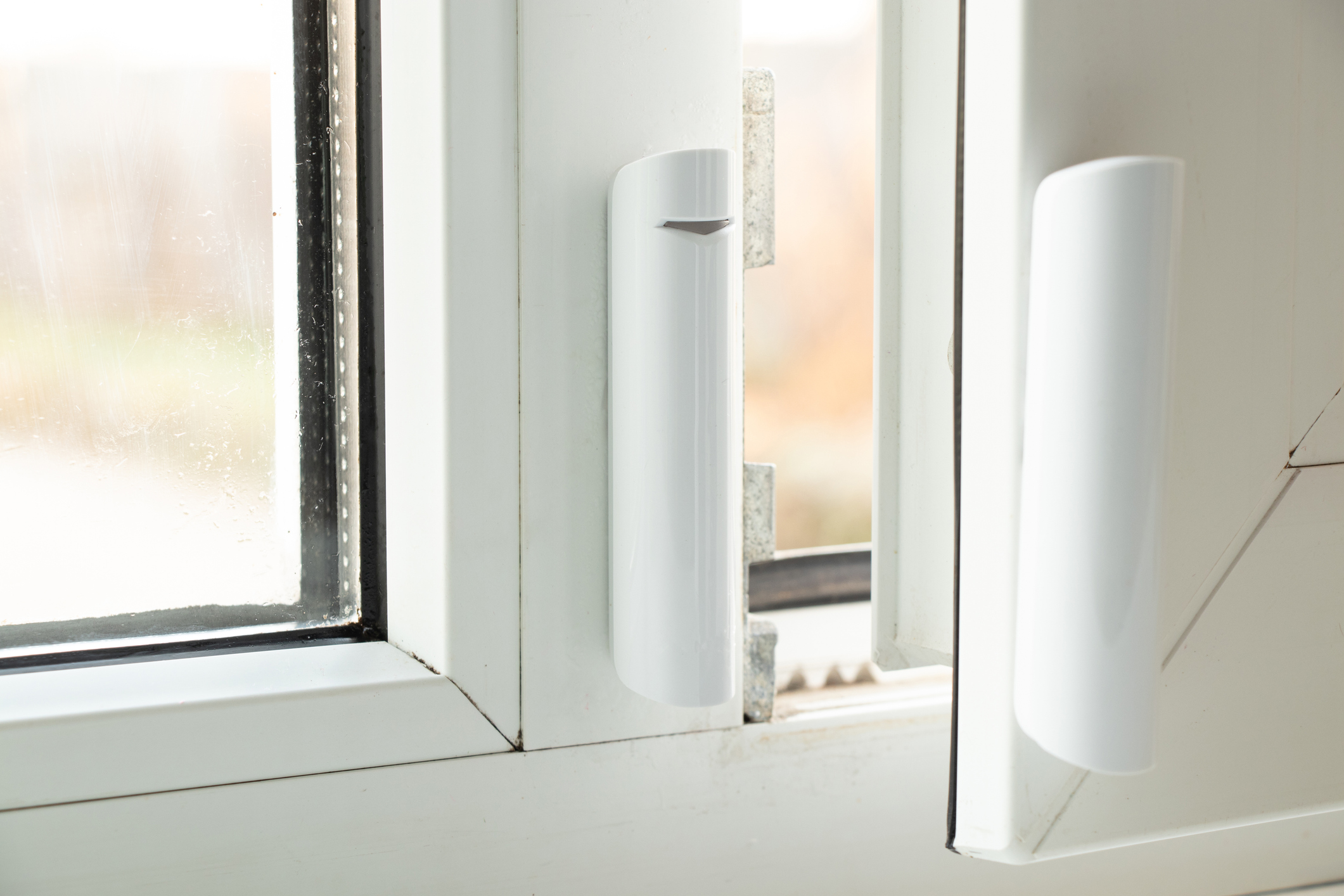In 2023, US retailers lost $121.6 billion to theft, and projections suggest this number may rise to over $150 billion in 2026. Brick-and-mortar businesses face the daily responsibility of protecting company assets, employees, and customers—regardless of the dangers that come with the constant threat of crime and theft.
Today, there are various types of security cameras for businesses to consider, along with numerous options for other types of security technology. Businesses of any size have options for affordable protection. However, many small business owners are overwhelmed by the technology options available and worry systems will be too complex to figure out.
We’ve put together this guide for 12 different security systems and types of security cameras for business owners to be aware of to make it easier to choose the one that’s right for your business.
Why Do Businesses Need a Security System?
The most obvious benefit of adding a security system is stated in the name itself: Security.
Security systems help business owners protect their assets, employees, and customers by:
- Reducing incidents of theft and vandalism
- Preventing employee theft
- Improving workplace safety
- Protecting against legal liability
Additionally, insurance companies often give discounts to businesses when they provide proof of items like burglar alarms, fire alarms, surveillance systems, and monitored security.
4 Types of Security Systems for Businesses
The following are different types of security systems businesses can use to protect their premises:
- Access Control Systems
Electronic access control systems offer versatile, effective solutions for controlling physical access to buildings, rooms, and sensitive areas. Access control systems can come in different forms, including keycard systems like magnetic stripe cards and proximity cards, fobs, PIN codes, and smartphones.
Access control systems offer:
- Time-based access to restrict entry at specific hours or days
- Multi-factor authentication to control multiple types of credentials
- Remote management to control access from anywhere via a web interface
- Real-time monitoring for alerts regarding unauthorized access
- Biometric Systems
Biometric systems and access control systems serve a similar purpose: controlling access to secure areas. They primarily function to protect entry on-location but can be used for any scenario that requires arming and disarming access.
The main distinction in the advanced features with biometric entry to sensitive locations is that access is granted based on a specific individual and not solely based on a keycard user or any individual who knows a specific code.
Biometric systems can use a fingerprint scan, facial recognition, iris scanners, hand geometry readers, and similar technologies.
- Intrusion Alarm Systems
Alarm systems provide protection against unauthorized access by alerting property owners or authorities of a break-in attempt.
Wired alarm systems may require professional installation and are considered reliable and difficult to tamper with. Wireless alarm systems may use radio frequency signals for communication and operate on battery-powered sensors that require periodic replacement.
Alarm systems can have sensors on doors and windows, and/or sensors that detect motion, broken glass, and even footsteps using pressure mats.
Alarm systems typically have a keypad to disarm them and a siren that deters intruders with a loud alarm. Modern systems may include smart home features, smartphone apps, and other advanced features.
- Fire and Safety Alarms
Fire and safety alarms play a crucial role in protecting lives and property by providing early detection of fire hazards and other dangerous conditions. Here’s an overview of fire and safety alarm systems, including their key components and benefits:
Fire and safety alarms are crucial in saving lives from the hazards of smoke, fire, and carbon monoxide through early detection. They include features like smoke, heat, and carbon monoxide detection and notification devices like sirens and strobe lights.
These devices reduce property damage and save lives, and also ensure businesses are in compliance with safety codes. They can come with remote monitoring to ensure the fastest response from emergency services.
Are Security Cameras Necessary for Businesses?
Businesses are safer when they utilize indoor and outdoor video surveillance cameras. They act as a visual deterrent to criminals, assist in employee safety, prevent employee theft, and provide evidence for criminal cases and accidents.
8 Types of Security Cameras for Businesses
Security cameras can provide business owners with a wide range of features and options. The following are eight distinct types of security cameras to consider using:
- Indoor Cameras
Indoor security cameras allow business owners to keep an eye on merchandise, employees, and customers. They can help ensure employees aren’t stealing, and also make it possible to evaluate their work ethic and keep tabs on individuals during their shifts.
Indoor security cameras are also helpful in providing evidence during burglaries or in cases involving false accusations made against a business.
- Outdoor Cameras
Rain or shine, outdoor security cameras are weatherproof, so they can provide reliable video footage regardless of the weather conditions. Many outdoor cameras also come with night vision, so visibility isn’t impaired when the sun goes down.
Outdoor cameras act as a visual deterrent to intruders. They can be motion-activated to record movement and send alerts to business owners or activity, and the feed can be viewed live 24/7.
- Floodlight Cameras
Floodlight cameras share many features with outdoor security cameras. In addition, they can be triggered to turn on based on motion detection and record video. Different warning patterns like flood, strobe, and red and blue warning lights can be accompanied by a built-in siren, all acting to help ward off intruders.
- Analog Cameras
Analog security cameras have been a staple of business surveillance systems for many years. Here’s an overview of their pros, cons, and potential issues for businesses:
Analog security cameras have historically been synonymous with Closed-Circuit Television (CCTV) cameras, which transmit analog video footage over coaxial cables. This transmission can then be digitized and recorded by a digital video recorder (DVR).
Analog cameras have typically been the cost-effective option. The simplicity of the wired coaxial operation makes them easy to set up, and since analog does not have any digital latency, they are reliable. Analog is also not susceptible to cyber attacks.
The main downside to analog cameras is that they generally have lower resolution video quality than digital cameras. While analog cameras are affordable, high-quality analog is very expensive compared to digital.
While digital is clearly the forward direction for security cameras, many businesses still prefer the familiarity and simplicity of setting up an analog system.
- Digital Cameras
Digital security cameras offer several advantages over older analog systems, but they also come with some potential drawbacks. Here’s an overview of the key points:
Digital cameras fulfill the same purpose as analog systems, but they are now able to provide a higher image quality for more detailed footage. This is a powerful benefit for identifying intruders and criminals. Because digital cameras can store footage in the cloud and be operated and monitored over digital networks, they can scale more easily and efficiently than analog cameras.
- Doorbell Cameras
Doorbell cameras typically include 2-way audio to allow business owners to chat with visitors at the door, including unwanted visitors during off hours, thanks to remote operations. Additionally, doorbell cameras can be motion-activated to send alerts.
- Wired Cameras
The primary reason people who choose wired security cameras prefer them over wireless options is their reliability. Wired cameras have the ability to provide a more stable connection than wireless options. They tend to have fewer issues with dropouts or signal interference.
Wires are currently capable of transmitting a higher image resolution, though bandwidth and internet connection speed will probably continue to scale until they eventually outpace wired solutions. Wired systems are harder to hack into and more difficult to intercept.
These systems can be more complex to install, which raises initial costs. Some find they are more limiting in where they can be set up, partly because of the visual aesthetics involved in hiding wiring.
- Wireless Cameras
Wireless security camera systems have grown in popularity with businesses of all sizes over the years because of the flexibility and ease of installation. Because multiple cameras can share the same network, it’s easier to scale wireless systems to add more cameras.
Wireless systems tend to have more advanced remote access and control features, placing lots of technical options in the hands of business owners.
Wireless systems are more susceptible to cyber threats and hacks than wired systems, and they can come with technical limitations like latency and dropouts.
Choosing the Right Camera or System
There are a lot of options for security cameras on the market, and that competition has made them affordable despite their high quality. In most cases, the best option will be a digital security camera. Not only is their quality high even at an affordable price, they come with the greatest range of options to match your needs.
Other factors to consider include:
- The square footage of your business
- The number of entrances and exits
- Other inside areas that require surveillance and limited entry, like cash registers or locked goods
- Compliance within your industry
- Lighting conditions at your location
- Your existing internet capabilities
Assessing these considerations will help you determine the scale and specific types of technology that will serve you best, so you can cut down on the possibility of crime.
Choose Fluent Home for Your Business Security Needs
Fluent has a plentiful range of security systems for you to choose from to accommodate virtually any small business. Get in touch with us to discuss your customized surveillance and security needs today!


